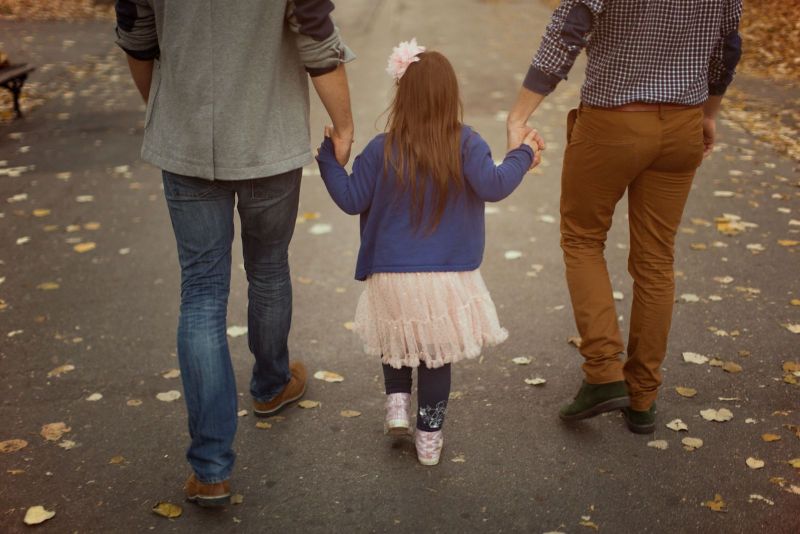4 Important Adoption Definitions You Should Know

If you’re unfamiliar with adoption, whether you’re a prospective birth or adoptive parent, the terms associated with this process can be confusing. To better help you understand, we will define adoption terms here.
So, first off, what should you know about the adoption definitions used today? While the dictionary definition of adoption-related terms can be narrow, adoption and its related terms can mean very different things to those who use them.
Whether you’re a prospective birth parent, hopeful adoptive parent, adoptee or have no connection to adoption at all, here’s a basic rundown of four adoption terms — and their adoption definitions — you should know:
“Adopt”
How do we define “adopt” when it means so many different things?
We’ve all heard the phrases: “adopt a highway,” “adopt a dog,” or “adopt a family for Christmas.” Is this the same “adopt” used in reference to babies and children?
Like many words in the dictionary, “to adopt” has different meanings, depending on how it’s used.
Generally speaking, though, to “adopt” means “to take by choice into a relationship, especially to take voluntarily as one’s own child.”
As we’ve mentioned, the term can also be applied to animals or ideas.
But in this article, we’ll stick with the “adopt” definition and context regarding people — specifically, babies and children adopted through agencies and other professional services.
“Adoption”
So, with so many different uses, what is the definition of “adoption”?
Related to human children, “adoption” means “the act or process of adopting a child.”
But, legally, adoption doesn’t just refer to children, although that’s its most popular use. In fact, adults over the age of 18 can legally be adopted, as well.
To define adoption and what it means to the people involved, however, is trickier.
For parents who adopt children, adoption may be the only hope they have of becoming a family and a process for which they are forever grateful.
For birth parents, adoption may give them the chance to pursue their own hopes and dreams while still giving their child the best opportunity possible.
For children who have been adopted, adoption is a key part of their self-identity and life — without which they would not be where they are today.
If you ask anyone affected by adoption what it means to them, you’ll likely get a personal answer that reflects their own experience with adoption.
So, there’s really no singular definition of adoption — just the understanding that it’s a celebrated way of creating a family.
Helpful Information
“Adopted”
When someone uses the term “adopted” as an adjective, it usually refers to a child or adult who has legally become part of a family other than their biological parents’.
But an “adopted” definition, like the word “adoption” itself, may mean different things to different people.
For example, someone who has experienced a closed adoption or other adoption challenges may attach negative connotations to the word.
But, with the majority of adoptions today being completed openly and honestly, most of the children who embrace the term “adopted” celebrate what it means to them.
As a part of their self-identity, the term “adoption” represents the love their birth mother had for them to give them their best opportunity, the commitment their adoptive parents took in making them a part of the family and their own unique impact on the world as a child who was placed for adoption.
It could even be a source of pride as a term representing the unique relationships their existence created between two previously unrelated sets of parents.
In this case, many adoptees’ definition of “adopted” is one word: love.
“Adoptive”
To define “adoptive” is similar as defining the word “adopted”; it’s a label that many parents who have adopted a child wear with pride and love.
Technically, it means “made or acquired by adoption,” and most commonly, it’s applied to parents who have adopted a child. It’s also a term that helps distinguish between parents who gave birth to a child and parents who have chosen to adopt and raise that child.
Using the term “adoptive” to refer to parents who have adopted a child is much more important during the adoption process than after the adoption is complete.
During the process, the term helps to distinguish between the birth parents and the parents adopting their child.
After the adoption is complete, however, there’s really no need to refer to parents as “adoptive”; many families choose to drop the term because they are the true parents of their child, no matter what way they went about making that happen.
---
Adoption definitions may seem straightforward at first, but it’s important to remember that each term holds a special meaning for those affected by the process. Adoption-related terms mean something different to different people, but the adoption definitions in this article are a great place to start when you’re trying to understand more about adoption.
Disclaimer
Information available through these links is the sole property of the companies and organizations listed therein. American Adoptions provides this information as a courtesy and is in no way responsible for its content or accuracy.
